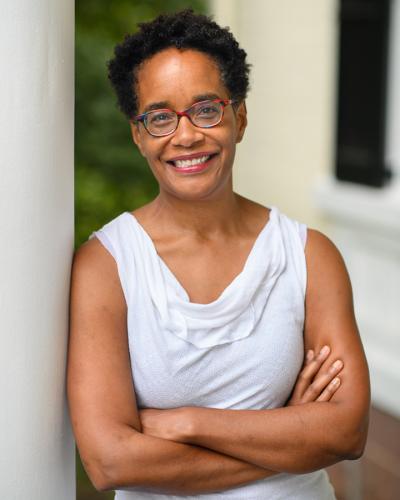Carolyn M. Rouse
Ritter Professor of Anthropology, Princeton University; President-Elect/Vice President American Anthropological Association
Carolyn Rouse is a professor of the Department of Anthropology at Princeton University. Her work explores the use of evidence to make particular claims about race and social inequality. She is the author of Engaged Surrender: African American Women and Islam, Uncertain Suffering: Racial Healthcare Disparities and Sickle Cell Disease and Televised Redemption: Black Religious Media and Racial Empowerment. Her manuscript Development Hubris: Adventures Trying to Save the World examines discourses of charity and development and is tied to her own project building a high school in a fishing village in Ghana. In the summer of 2016 she began studying declining white life expectancies in rural California as a follow-up to her research on racial health disparities. In addition to being an anthropologist, Rouse is also a filmmaker. She has produced, directed, and/or edited a number of documentaries including Chicks in White Satin (1994), Purification to Prozac: Treating Mental Illness in Bali (1998), and Listening as a Radical Act: World Anthropologies and the Decentering of Western Thought (2015). As an extension of her commitment and training in visual anthropology, in the summer of 2016 she created the Ethnographic Data Visualization Lab (VizE Lab) to work with students and colleagues on ways to visualize complex ethnographic data. One project she is currently working on through the lab brings together 60 years of biological data with 60 years of social scientific data to study epigenetic effects on physical development.
Religion
Her work on religion focuses on how authority in Islam is used to validate notions of racial equality and social justice. She explores these themes in her book Engaged Surrender: African American Women and Islam (2004), and Televised Redemption: The Media Production of Black Muslims, Jews, and Christians, co-written with John Jackson and Marla Frederick (manuscript). Below is a link to an interview she gave at the American Anthropological Association meetings on the subject: Click here to view interview.
Medicine
Her work in medicine explores how statistical evidence is used to make claims about health care and social justice. She focuses on uncertainties around what constitutes a racial health disparity, and the evidence-based research used to assert particular narratives of injustice and calls for reparations. Her work in this area includes Uncertain Suffering: Racial Health Disparities and Sickle Cell Disease (2009), as well as other articles and chapters.
Development and Education
In 2008, Carolyn Rouse began building a high school in a fishing village at the western edge of Accra, Ghana. Her research focuses on the relationship between international development and social change in urban sub-Saharan Africa. Her manuscript Development Hubris: Adventures Trying to Save the World (under review) examines contemporary discourses of progress and social improvement through her experiences with Ghanaian law, violence, labor, and education.
Film and Video
Carolyn Rouse began her graduate career as a visual anthropologist. After taking a hiatus from filmmaking, she is now editing a non-MOOC/MOOC on World Anthropologies, shot in Cape Town South Africa in 2013.
For more information and a full bibliography, click here to view her Princeton profile.

